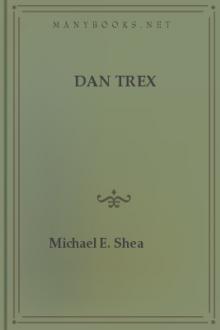How to Be a Mentsh (and Not a Shmuck) by Wex, Michael (summer reading list txt) 📕

Read free book «How to Be a Mentsh (and Not a Shmuck) by Wex, Michael (summer reading list txt) 📕» - read online or download for free at americanlibrarybooks.com
Read book online «How to Be a Mentsh (and Not a Shmuck) by Wex, Michael (summer reading list txt) 📕». Author - Wex, Michael
The Talmud talks about such feelings in a context that might seem a bit unusual:
Whoever has money and lends it without witnesses violates the prohibition against placing a stumbling block before the blind [see Lev. 19:14]. Resh Lakish says: He brings a curse upon himself.
(BOVO METSIYO 75B)
“The blind” here means you, the lender. In its immediate Talmudic environment it means that you’re so carried away by the thought of all the interest that you’re going to earn that you neglect to take the basic precautions to make sure that you get paid. In a larger sense, you’re so blinded by the thought of getting what you want—generally for very little effort—that you ignore everything else and “just do it,” and end up with egg all over your face.
Resh Lakish’s statement about the curse refers to the inevitable lawsuit and the fact that the person to whom you’ve lent the money will deny ever having borrowed it. In the absence of properly witnessed documentation, you’ll be able to kiss the money you loaned, along with the money that you spend on legal fees and any reputation for competence that you might have had, good-bye.
Note that self-shmuckification of this kind is described as a violation of divine law. We’re dealing with a system in which stupidity has become a sin, and like all sins it can be avoided. All we have to do in the case just outlined is to follow the advice that we’d give anyone else by trying to run our lives on the basis of a little seykhl, a little rational thought, rather than pure emotion. This might not be easy, but it’s nothing—a moral and emotional picnic—compared with the kind of shmuckish passivity that so robs its victims of any insight or willpower that they can no longer recognize their own situation, let alone do anything to improve it.
The prototype, the classic example, is found in a Yiddish short story written in 1894 by Y. L. Peretz, one of the central figures in the creation of modern Yiddish literature. Bontshe Shvayg—Silent Bontshe—the character for whom the story is named, lives a life more humble than anything that Uriah Heep (not to mention Mott the Hoople) would ever have pretended to. A porter by profession, he was mistreated as a child, abused as an adult: cheated, robbed, cuckolded, and mocked, yet Bontshe, alone of all his tribe, never once complained, never once cried out, not even, the story tells us, when the knife slipped at his circumcision.
After his death, the heavenly powers decide to reward him for his years of patient suffering. He’s admitted straightaway into Paradise and told that he can have whatever he wants, anything at all; if he really wants, he can have everything. It’s the least they can give him for a lifetime of nothing.
Bontshe can hardly believe his good luck. Although Peretz never describes what goes on in his head, readers for over a century have been seduced by their own visions of gold, silver, dancing girls, and tables laden with the most exquisite food and the rarest of wines. It’s unlikely that Bontshe shares their vision; he thinks for a minute, then turns to the judge of the heavenly court and confidently reels off the whole of his wish list: a hot roll with butter for breakfast every morning.
Peretz’s story was hugely controversial in its day, primarily because Bontshe was seen as a symbol of the Jewish people and Bontshe, it should be clear, is a shmuck. Suffering has made him stupid; he has internalized his tormentors’ image of him so completely that he is literally incapable of imagining any other kind of life (or afterlife) for himself. Henoch of Alexander, a mid-nineteenth-century Polish Hasidic leader, once said, “The real exile of Israel in Egypt was that they had learned to endure it,” that is, they started to think like slaves, to look at themselves in the same way as their Egyptian owners did; they lost sight of what they could be and were happy to struggle to remain the slaves that they already were.
Henoch’s teacher, Menachem Mendel of Kotzk, the last and most imposing of the classical Hasidic leaders, illustrated this kind of shmuckery in a parable:
There was once a prince who behaved so badly that his father, the king, drove him from the palace and had him exiled to the farthest reaches of the kingdom. With no other means of earning a living, the prince hired himself out to a craftsman as an apprentice, for which he was given his food but nothing else. He went around barefoot and in tatters.
One day, the king was thinking about his son. He summoned a friend and said, “Go, find out where the prince is.” Once the friend had found the prince, he asked, “What would you like me to ask your father, the king, on your behalf?”
The prince replied, “He sent me into exile. The least he could do is send me something to wear and a pair of shoes.”
The king’s friend said, “Idiot! You were supposed to say, ‘Ask my father to take me back.’ Then you would have had everything.”
The prince and Charlie Brown, Bontshe and someone who lends money without witnesses, are the type of minor-league shmuck known in Yiddish by the name of shmendrik. In a language known for its versatility in insult, shmendrik





Comments (0)